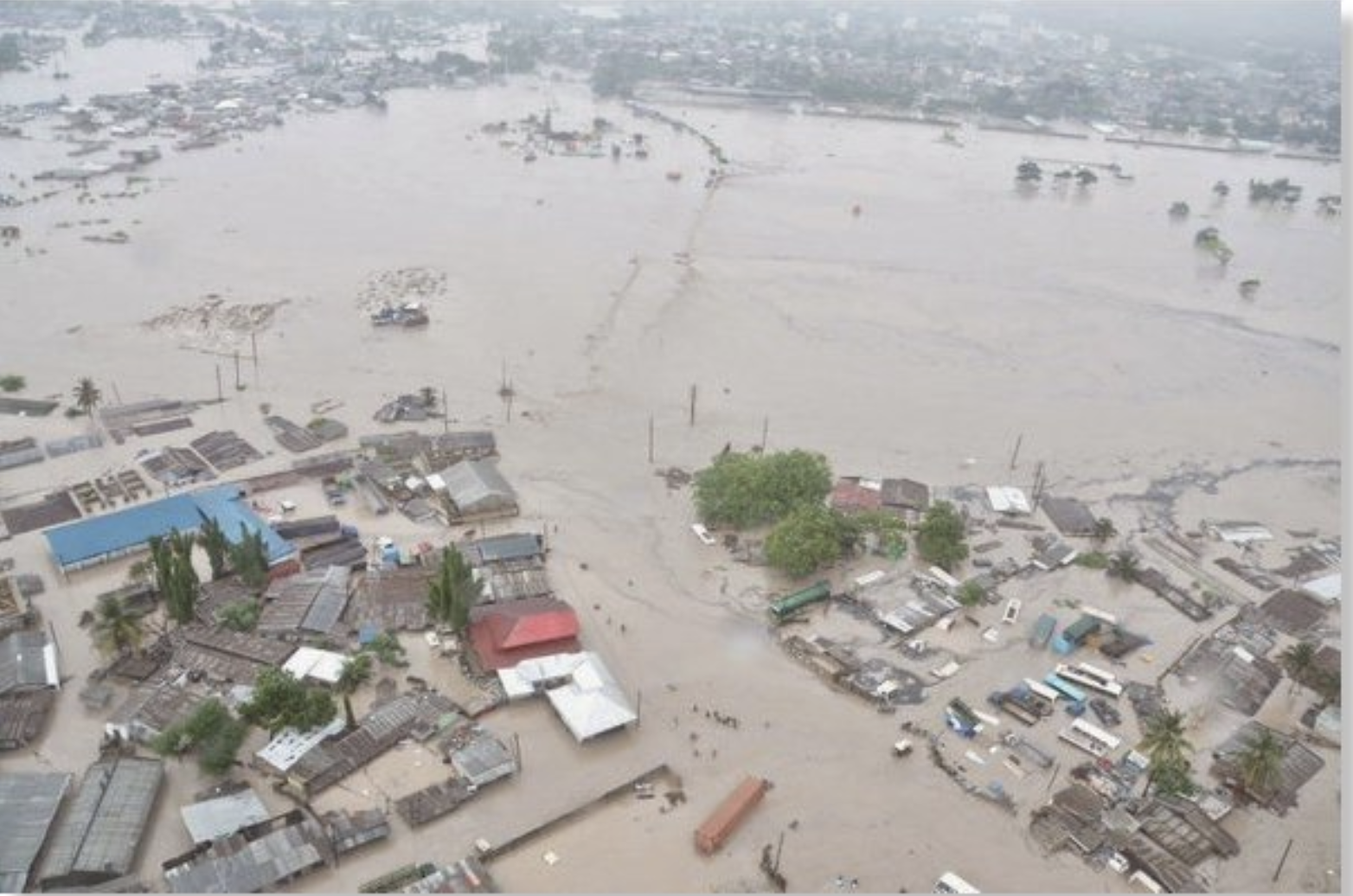Dr. Agnes Kalibata Advocates for Strengthened African Food Systems at the 54th World Economic Forum
Davos, 16 January 2024 – At the 54th World Economic Forum, a remarkable session titled “Movers and Shakers in Transformation: How Sustainable Business Models are Delivering on Africa’s Climate and Food Agenda” was hosted by AGRA under the insightful leadership of its President, Dr. Agnes Kalibata. Addressing a gathering of global leaders, Dr. Kalibata emphasized the evolving narrative of food systems and the urgent need to harness Africa’s vast agricultural potential.
Dr. Kalibata began her speech on an optimistic note, reflecting on the changing climate and the increasing prominence of food systems in global discourse. “It’s really good to see you here…Food systems are beginning to be the conversation. We are actually gaining a lot of momentum and some of the stuff that we are seeing on the ground is moving,” she remarked, underscoring the progress made since the Food System Summit.
She highlighted the tremendous trade potential within the African continent, noting the stark contrast between the continent’s $50 billion food import bill and the modest intra-African trade levels. Dr. Kalibata pointed out the opportunities lying within this disparity, particularly in commodities like rice, wheat, and maize. “The good news is that this is only in four commodities…that we could actually start moving already,” she stated, signaling a call to action for increasing self-sufficiency and trade within the continent.
Dr. Kalibata proudly shared success stories of partnerships and investments that have led to tangible results on the ground. She detailed the achievements of companies like Africa Improved Food and Unilever, which have not only invested in the continent but also integrated hundreds of thousands of farmers into their supply chains, thereby creating robust business ecosystems. “Africa improved food is now purchasing from over 350,000 farmers…that’s the signal you want because that farmer will go and purchase seed, that means businesses like seed companies will survive,” she explained, highlighting the multiplier effect of such investments.
With a vision towards the future, Dr. Kalibata urged the attendees to be an active part of Africa’s mainstream economies and stressed the importance of collaboration in scaling successful models. “Today is about discussing what you have seen that works, tell us what you know that works, we have what we can scale…let’s collaborate around how we get this work done and really do big things,” she passionately declared.
Acknowledging the partners and supporters of AGRA, Dr. Kalibata extended her gratitude to organizations like the Bill & Melinda Gates Foundation, USAID, the Rockefeller Foundation, and the Mastercard Foundation, recognizing their contribution to empowering African agriculture and advocating for youth engagement in the sector.
Dr. Kalibata’s address at the World Economic Forum was not just a reflection of the progress made but also a powerful call to action for harnessing Africa’s agricultural potential, strengthening food systems, and fostering sustainable growth through strategic partnerships and innovative business models.
On her side, AGRA board memeber, Ndidi Okonkwo Nwuneli, the Founder and CEO of Sahel Consulting, shared insights into her remarkable journey as an entrepreneur in the food and agriculture sector for the past 16 years. Nwuneli, a trailblazer committed to fostering growth in the sector, highlighted the challenges faced by small and medium-sized enterprises (SMEs) in Africa and unveiled Sahel Consulting’s innovative solutions to empower entrepreneurs across the continent.
Addressing a global audience, Nwuneli emphasized the isolation and struggle to scale faced by many SMEs in the African food and agriculture sector. In response to these challenges, Sahel Consulting serves as a one-stop-shop for entrepreneurs in 40 African countries, providing essential support in the form of data, funding, access to markets, knowledge, training, and partnerships.
Nwuneli elaborated on two critical areas where Sahel Consulting is currently directing its efforts. The first is addressing the impact of climate change on entrepreneurs, particularly those with limited resources. In collaboration with the Skoll Foundation, Sahel Consulting launched RACE, an e-learning platform combined with practical field experience. The initiative has successfully supported entrepreneurs in 10 African countries, with plans to expand to 15 countries this year.
The second focus area is trade, where Nwuneli highlighted the lack of data and information hindering entrepreneurs from exploring opportunities. Sahel Consulting is building platforms within its community to bridge this information gap, enabling entrepreneurs to engage in trade effectively.
One notable challenge discussed by Nwuneli was the bias and perception surrounding proudly African products. Even within Africa, there exists a misconception that imported products are superior. To counter this narrative, Sahel Consulting is actively promoting indigenous products, emphasizing their effectiveness and nutritional value. Nwuneli stressed the importance of celebrating Africa’s contributions to the global food ecosystem and changing the perception of the continent from one of hunger to one of successful entrepreneurship.
Looking ahead, Nwuneli shared exciting plans for future AGRA meetings, where African chefs will showcase their culinary skills on the global stage. This initiative aims to reshape perceptions and highlight the rich diversity and excellence present in African cuisine.
Reflecting on her experience, Nwuneli emphasized the power of data and the need for a paradigm shift in mindset among international partners. She advocated for collaboration with local organizations, recognizing the importance of working with communities on the ground rather than displacing them.
Furthermore, Nwuneli stressed the significance of scaling impactful initiatives and celebrating excellence. Acknowledging the role of young people as drivers of innovation, she emphasized the need to amplify successful endeavors, provide funding, and facilitate learning to replicate and expand these initiatives.
Nwuneli, emphasized the critical importance of policy alignment and data integration in fostering positive change in the agricultural and food sectors during her address at the 54th World Economic Forum in Davos.
Highlighting the significance of starting with robust policies and data, Nwuneli underscored the pivotal role of the African Food Changemakers platform, a technology-driven initiative that seeks to bring transformative change to the sector. However, she went beyond technology, stressing the need for policy alignment within African countries and actionable steps from policymakers. Nwuneli expressed admiration for AGRA’s efforts in policy advocacy, acknowledging the challenges posed by inconsistent policy implementation in several countries.
Addressing the policy landscape, Nwuneli spoke candidly about the need for continuous engagement and consistency. She expressed concern over a pattern observed in many countries, where each new administration introduces a new template, hindering progress in the sector. Nwuneli urged for sustained efforts in holding governments accountable and creating an enabling environment for Small and Medium Enterprises (SMEs) in food processing to thrive. She stressed that the success of SMEs and the scaling of farmers as SMEs are instrumental in overcoming persistent challenges in the agricultural and food systems.
Beyond policy considerations, Nwuneli introduced the concept of an “eco-sphere of an emoji” that promotes the sourcing of good food from Africa. She envisioned a future where products on global shelves proudly display the message “sourced from the soil of Africa,” ensuring that the benefits of the agricultural value chain reach the African farmer directly. Nwuneli urged for a sense of pride in African food, emphasizing the need to brand it as “proudly African.” This, she believes, would contribute to the overall healthiness of the food, traceability, and a positive impact on climate, ensuring that the origin of the food is recognized and valued globally.
In her call for policy alignment and proudly African food branding, Nwuneli advocated for a holistic approach to transform the agricultural and food landscape. Her visionary perspective focused not only on technological advancements but also on the crucial role of consistent policies and the positive branding of African food as catalysts for sustainable change. As Sahel Consulting continues its commitment to driving innovation in the sector, Nwuneli’s address stands as a rallying call for policymakers and stakeholders to collectively create an environment conducive to growth and prosperity in African agriculture.


